News + Media
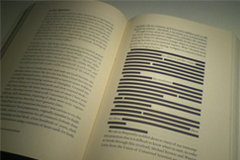 |
Analysis + OpinionNovember 22, 2005The heavy price of censorshipJohn TirmanInternational Herald TribuneTurkish prosecutors in Istanbul have brought a criminal action against the publisher of a book I wrote eight years ago. The case, without the public uproar that accompanies a similar action against the famous Turkish novelist Orhan Pamuk, could result in a jail term and hefty fine for the defendant, Fatih Tas. It is unfortunate for him, and it is costly for Turkey in ways the country does not seem to grasp. |
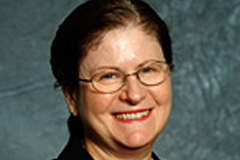 |
News ReleaseNovember 7, 2005MIT Security Studies research scientist wins MacArthur GrantCindy Williams, Principal Research Scientist at the Massachusetts Institute of Technology’s Security Studies Program, has received a two-year, $150,000 grant from the John D. and Catherine T. MacArthur Foundation. She will undertake a major project on national security strategy and resource planning, entitled “Improving the Nation’s Security Decisions.” |
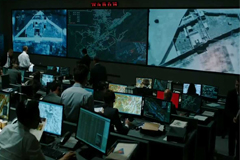 |
AuditNovember 1, 2005Why intelligence isn't to blame for 9/11Joshua Rovner, MITIt did not take long for blame for the September 11 attacks to cascade onto the intelligence community. But it is not deserved, and the reasons for that are important. |
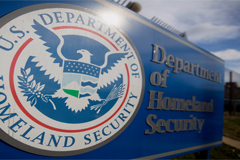 |
AuditNovember 1, 2005The hidden cost of homeland defenseBenjamin FriedmanConventional wisdom says that none of us are safe from terrorism. The truth is that almost all of us are. The conventional belief is that in response to terrorism, the federal government has spent massive sums on homeland security. The fact is that the increased federal spending on homeland security since September 11 pales in comparison to increases in the U.S. defense budget. But homeland security has costs beyond spending, costs that conventional thinking rarely considers. |
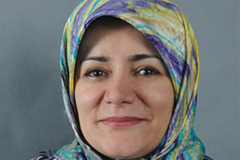 |
News ReleaseOctober 13, 2005Outspoken Iranian human rights activist joins MIT Center for International Studies as a visiting scholarFatemeh Haghighatjoo, a leading advocate of human rights and democracy in Iran, has joined CIS as a visiting scholar. This is the first visit to the United States for Ms. Haghighatjoo, who resigned from Iran’s Parliament in February 2004 following a crackdown on reformers. |
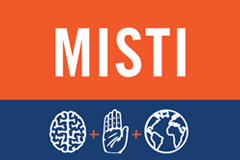 |
News ReleaseSeptember 12, 2005Innovative MIT program shines a spotlight on international educationSince 1994, the Massachusetts Institute of Technology's Center for International Studies has developed of one the most successful and wide-ranging international education programs in the country, particularly among universities focusing on science and technology. |
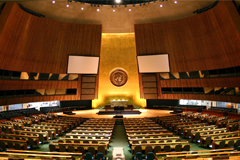 |
AuditSeptember 1, 2005Who needs the UN?Gary G. Troeller, MITThere has long been a feeling in the corridors of power in Washington that the United Nations is irredeemably flawed and condemned to ineffectiveness. It is viewed as an irritating constraint on U.S. power, or worse—expensive, wasteful, slow to act, and irrelevant. |
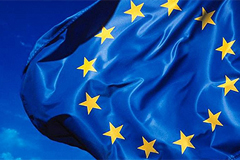 |
AuditSeptember 1, 2005The mirage of a united EuropeRobert Vickers, MITTo most Americans, the prospect of a united Europe has long been viewed not only as a favorable development, but even as an increasingly inevitable one. Our common political, religious and cultural heritage, democratic governments, market economies, and Cold War experiences have all contributed to the perception of Europe as a friend and natural ally of the United States, occasional differences not withstanding. |
 |
AuditSeptember 1, 2005Iran: rogue state?Ali Mostashari, MITIran is now an important focal point for U.S. foreign policy. Yet many have argued that the United States lacks a coherent foreign policy on Iran, amounting to no more than an enormous list of “evils”: namely, that Iran exports its radical Islamist revolution, supports Hezbollah and Hamas and actively opposes the Middle East peace process, is building nuclear and biological weapons capacity, was involved in the bombings of the Jewish center in Buenos Aires and the Khobar towers in Saudi Arabia, provides Al-Qaeda with safe passage and refuge, helps insurgents in Iraq, assassinates its own dissidents and oppresses its people, and so on. |
 |
AuditJuly 1, 2005All weapons of mass destruction are not equalAllison Macfarlane, MITIn the United States, weapons of mass destruction have become the bête noir of the 21st century. They are now the justification for pre-emptive war, for an expansion of the cold war nuclear arsenal, and for the spending of billions of dollars on offensive and defensive measures. Since significant portions of U.S. foreign and domestic policy are based on this categorization, it is high time to reflect on whether these weapons pose such a lethal threat. |

